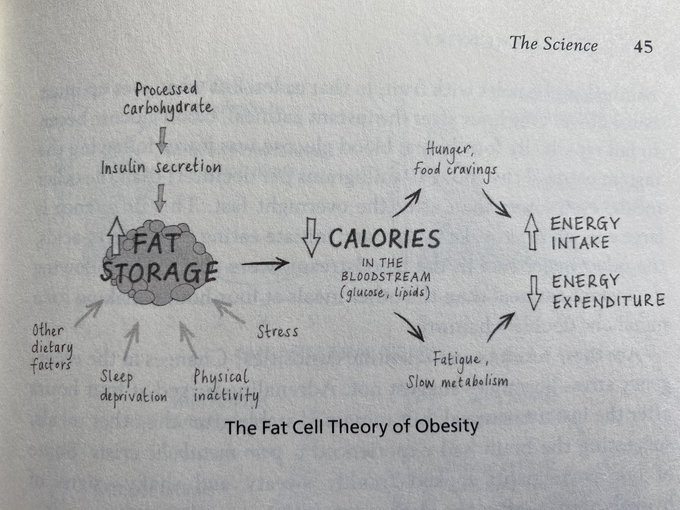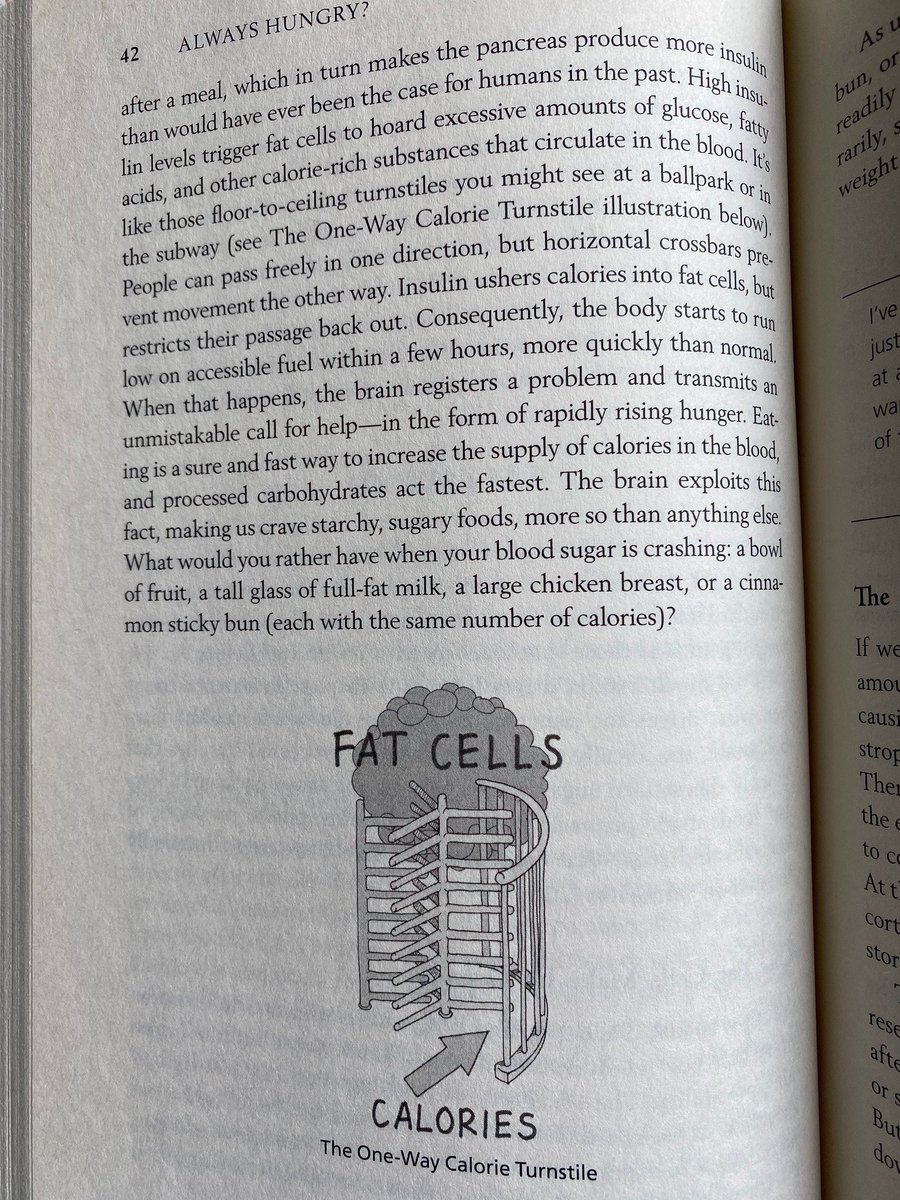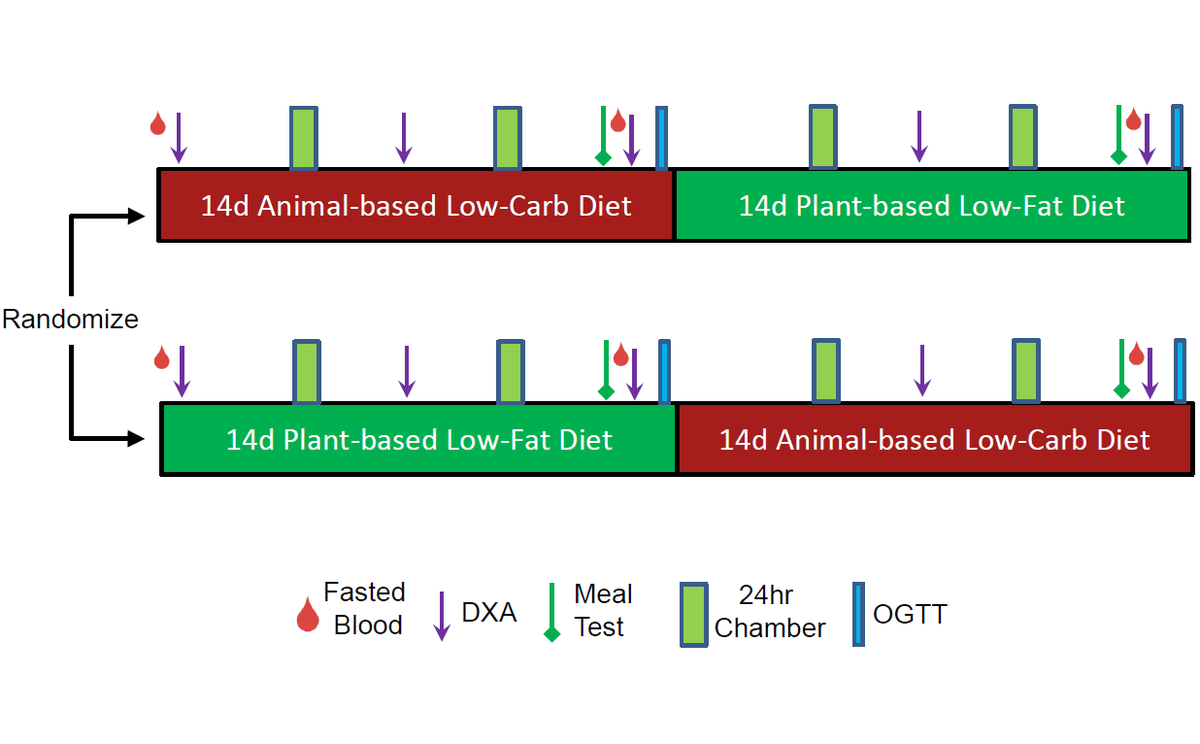
I hadn't expected @davidludwigmd to criticize the recent perspective in @ScienceMagazine with @JohnSpeakman4 on the basis that it presents a "straw man" version of the carbohydrate-insulin model (CIM) of obesity. We tried to faithfully represent his version of the CIM. Thread.
https://twitter.com/davidludwigmd/status/1394376268842364930
Dr. Ludwig's description: “a high-carbohydrate diet … produces postprandial hyperinsulinemia, promotes deposition of calories in fat cells instead of oxidation in lean tissues, and thereby predisposes to weight gain through increased hunger, slowing metabolic rate, or both.” 

This was also described as "the fat cell theory of obesity" in Always Hungry by where @davidludwigmd describes insulin as the "fat cell fertilizer" that acts as "The One-Way Calorie Turnstile" trapping fat in adipose tissue and leading to increased hunger & slowing metabolism. 



This version of the CIM was also described by @davidludwigmd in this video promoting his book:
The CIM in our @ScienceMagazine perspective (see below) is the same as the CIM described by @davidludwigmd above. By describing this CIM as a "straw man" it seems that @davidludwigmd thinks it is too simple and a better model is needed. We fully agree! science.sciencemag.org/content/372/65… 

We described experimental tests of the CIM that produced results counter to its predictions. No study is perfect, but rather than seriously consider their implications for the CIM @davidludwigmd brushed these studies aside describing them as "weak" and to be ignored as irrelevant
Rather than ignore these studies, we suggested that they should be used to help understand how insulin and other hormones can be incorporated within an energy balance model of obesity. It's a false dichotomy to say "only calories matter" versus "only carbs and insulin matter".
Low carb diets work well for many people, but the CIM described above likely does not explain why. Investigating the veracity of the CIM is not an "attack" on low carbohydrate diets. Rather, such studies lead to better mechanistic understanding and maybe better diet interventions
• • •
Missing some Tweet in this thread? You can try to
force a refresh





